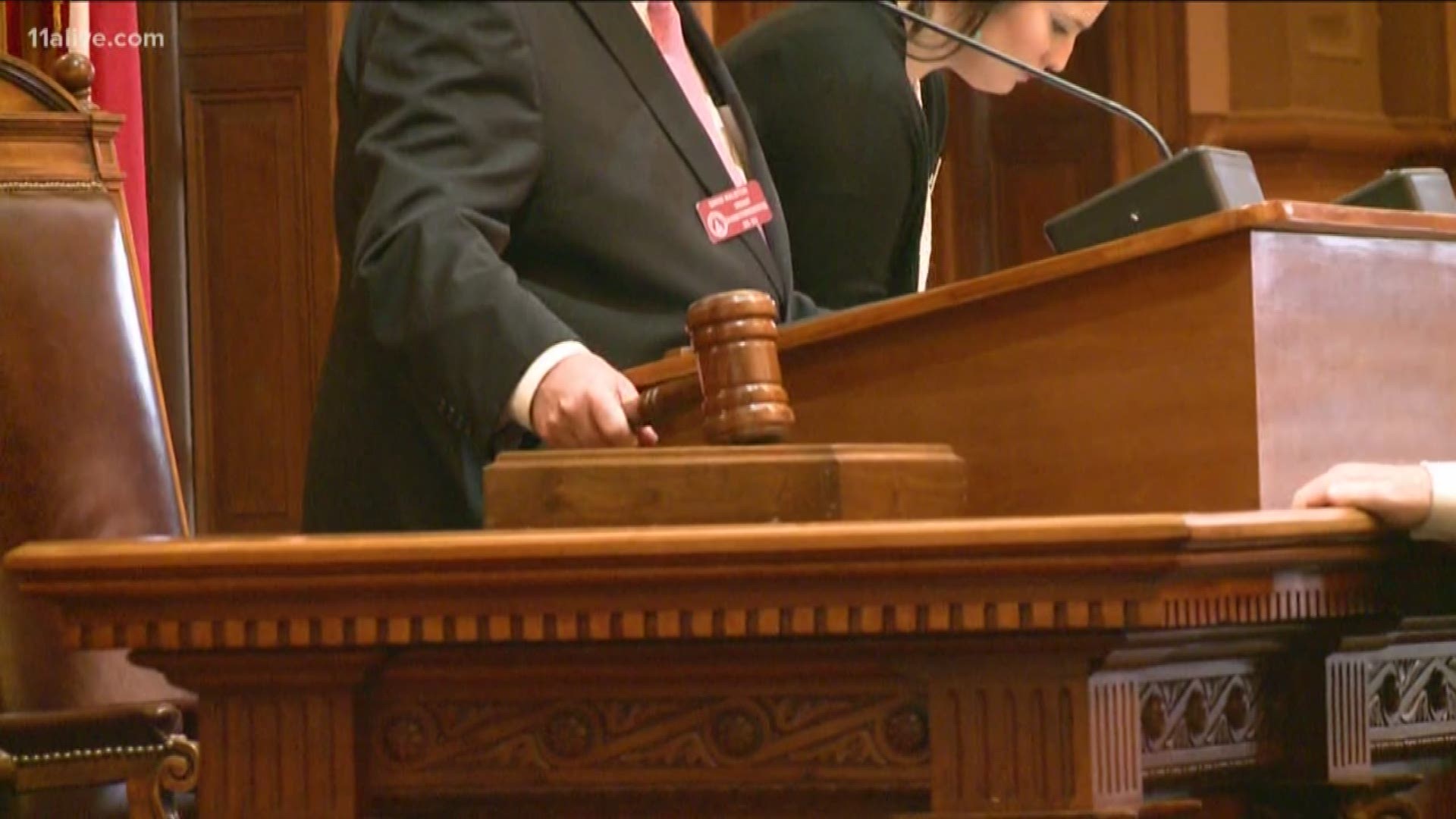ATLANTA — A new Georgia House bill would increase the penalties for hate crimes.
Under House Bill 26, anyone convicted of a crime that was committed because of the individual's belief or perception regarding race, color, religion, national origin, sexual orientation, gender, mental disability or physical disability would be subject to increased penalties for these crimes.
Punishment for a misdemeanor hate crime would range from three to 12 months of jail time, and a fine of $5,000. Any other hate crime of a "high and aggravated nature" would carry a sentence between six and 12 months of jail time, and a $5,000 fine. For felony hate crimes, the punishment would be a minimum of two years in prison.
The Georgia Legislative Black Caucus applauded the move.
"This sends a message that Georgia is opposed to hate and discrimination of any kind," the group said.
Currently, Georgia has no hate crime law on record - one of five states in the nation without one. But it hasn't always been this way.
Fourteen years ago, the state Supreme Court unanimously struck down Georgia’s hate crime law, saying it was “unconstitutionally vague.”
The ruling came in the case of a white man and woman convicted of beating two black men in Atlanta while screaming racial slurs at them.
Lawmakers have made several attempts to get new hate crime legislation passed, but none have been successful.
In 2017, House representative, Karla Drenner signed House Bill 660. The bill would have required training for officers on hate crimes and require them to report the crimes to the Georgia crime Information Center, but it languished in committee.
“It kind of died a committee death of inaction,” she explained. “This bill and many others like this bill have been introduced since that bill, none of them have had a hearing.”
Another bill presented by members of the legislative Black Caucus asked for more severe punishments for hate crimes. That bill died too.
“I’ve heard some of my colleagues talk about crime is crime,” she said.
In other words, a hate crime does not need its own distinction. And although there is no state hate crime, there is a federal hate crime law, which could lead to prosecution.

